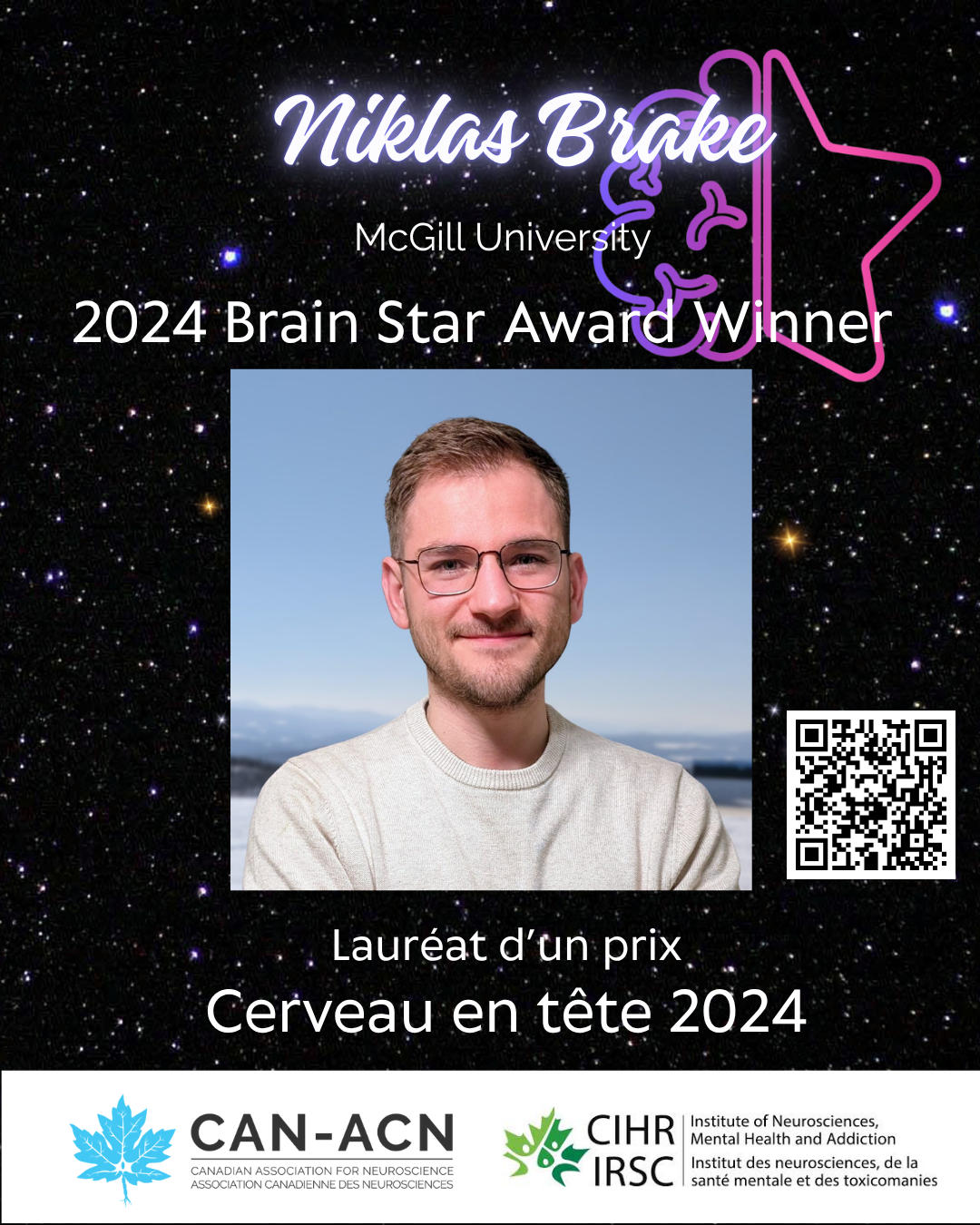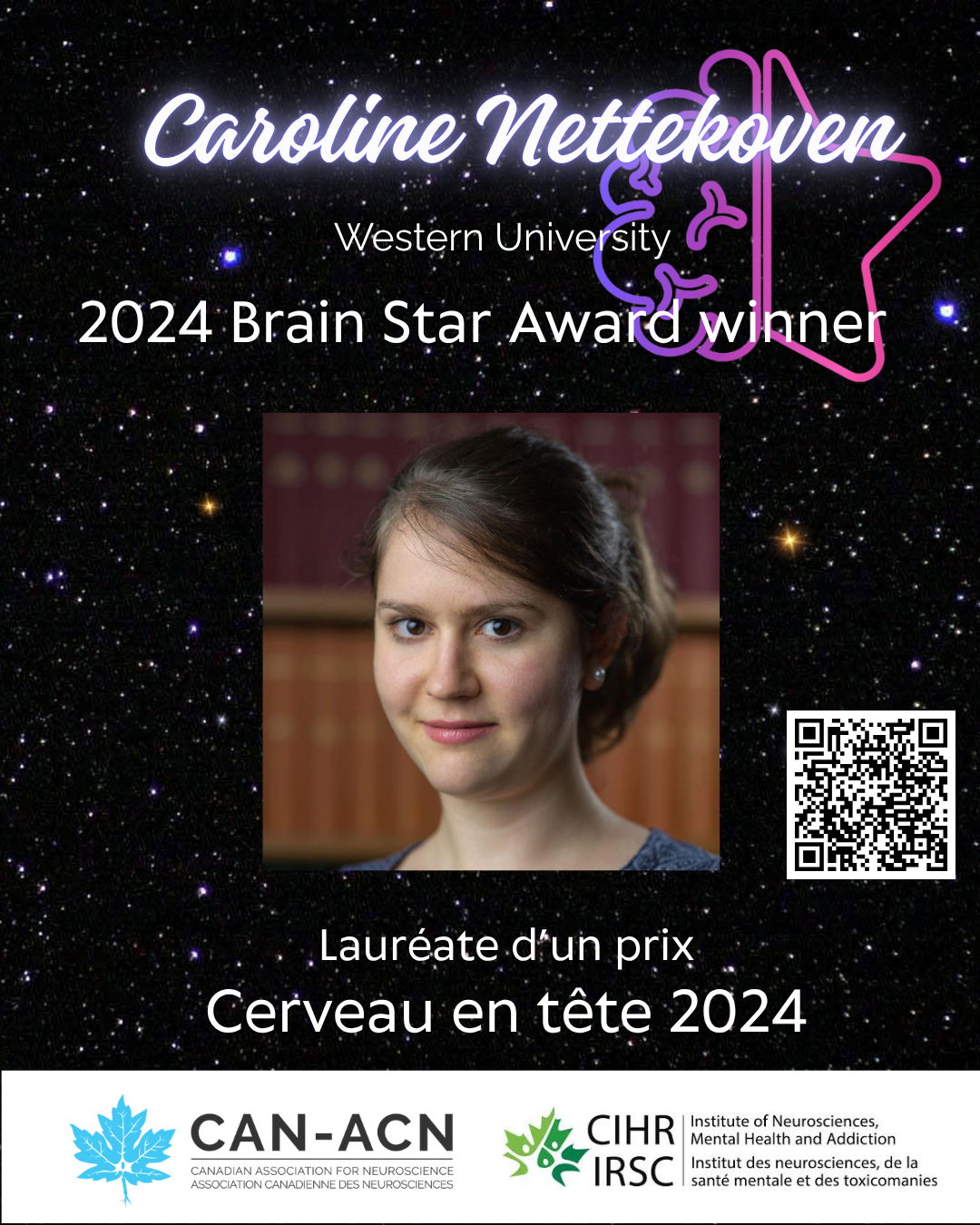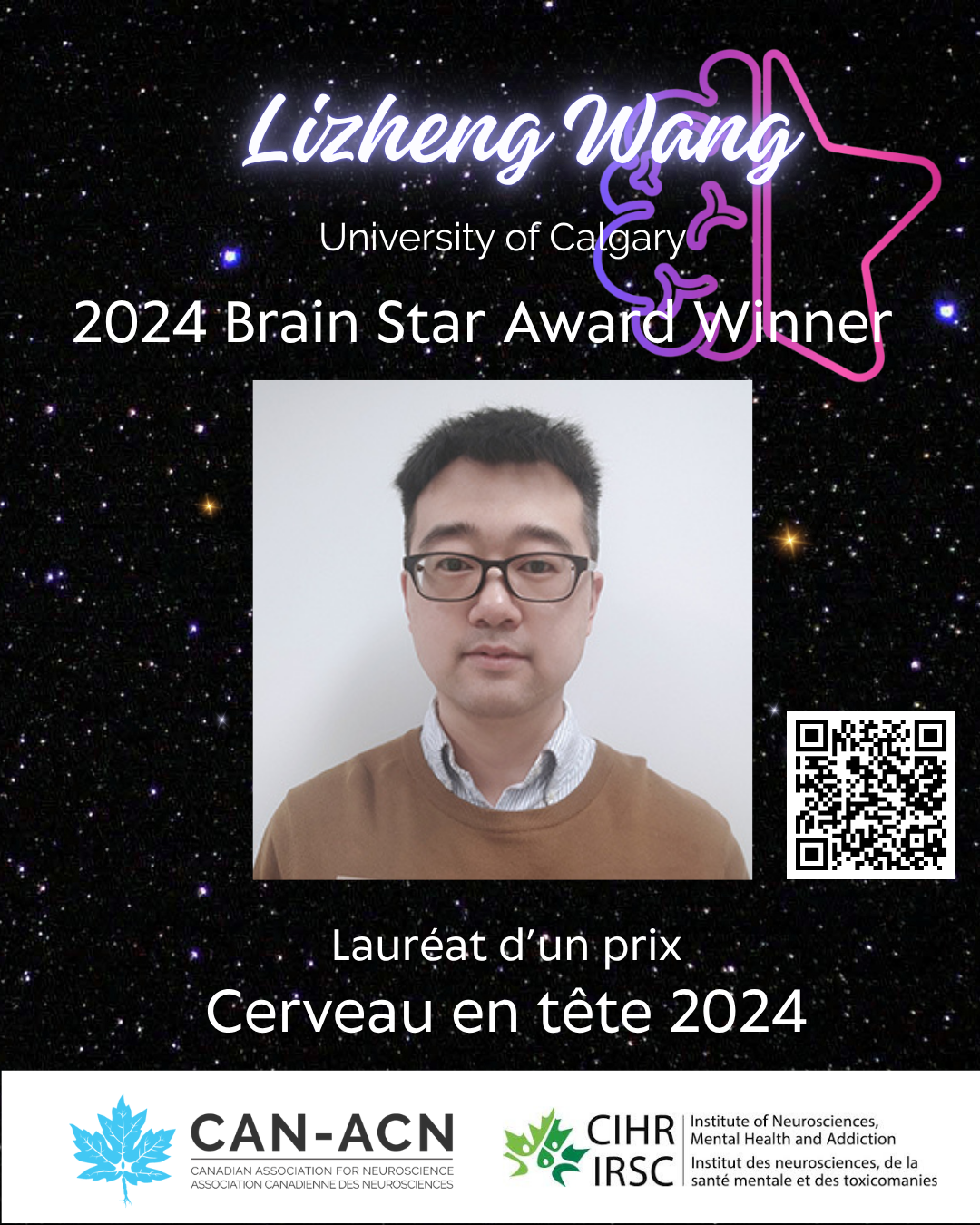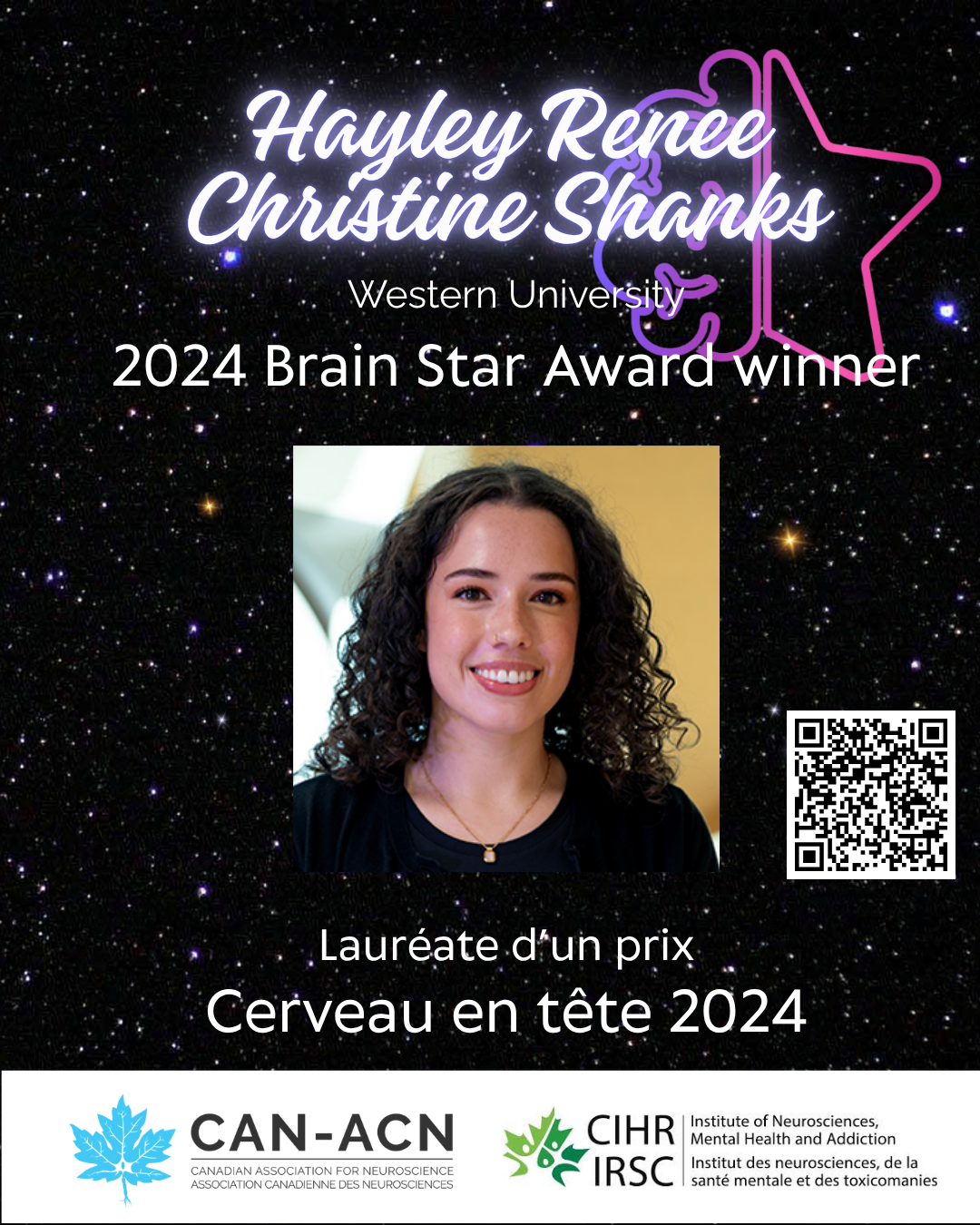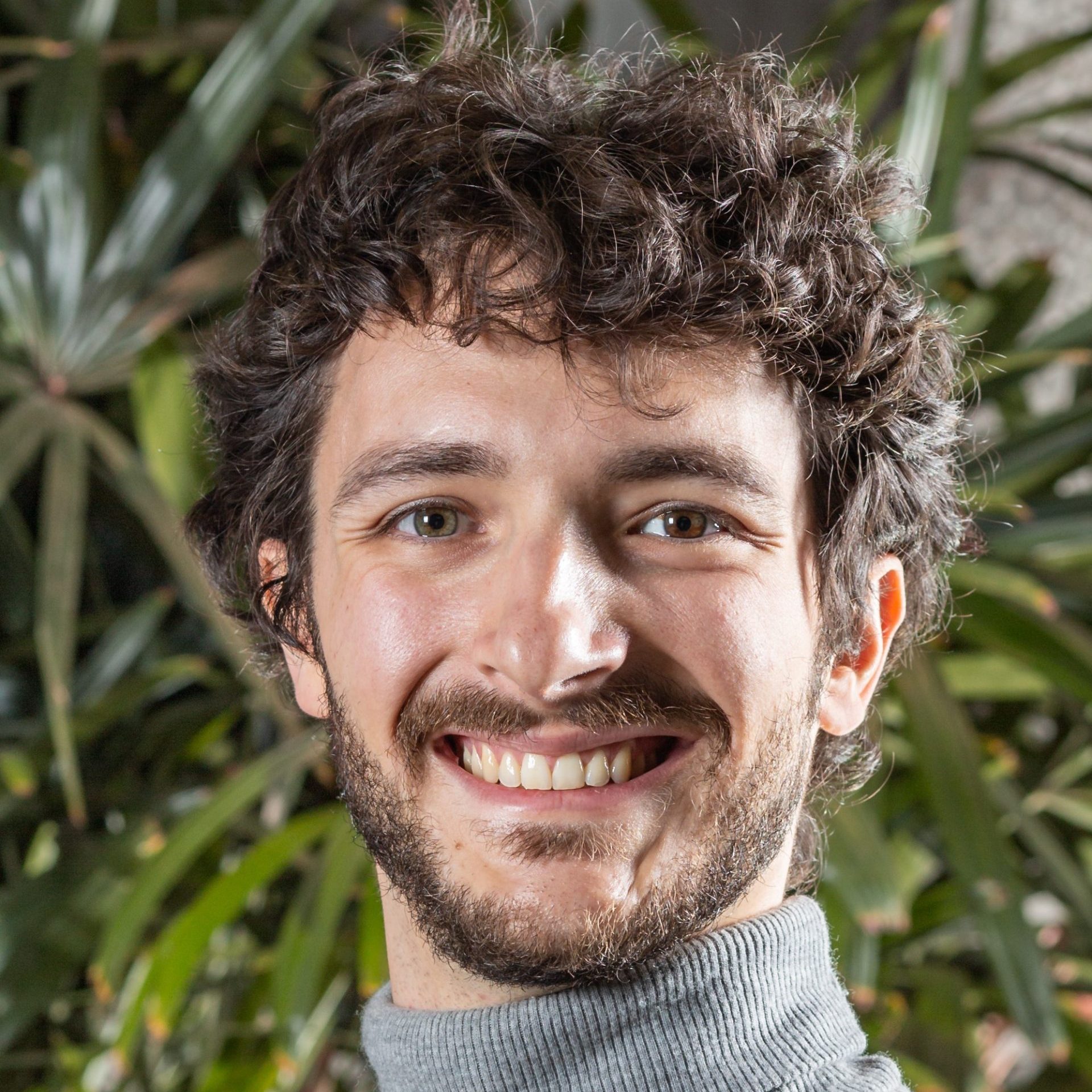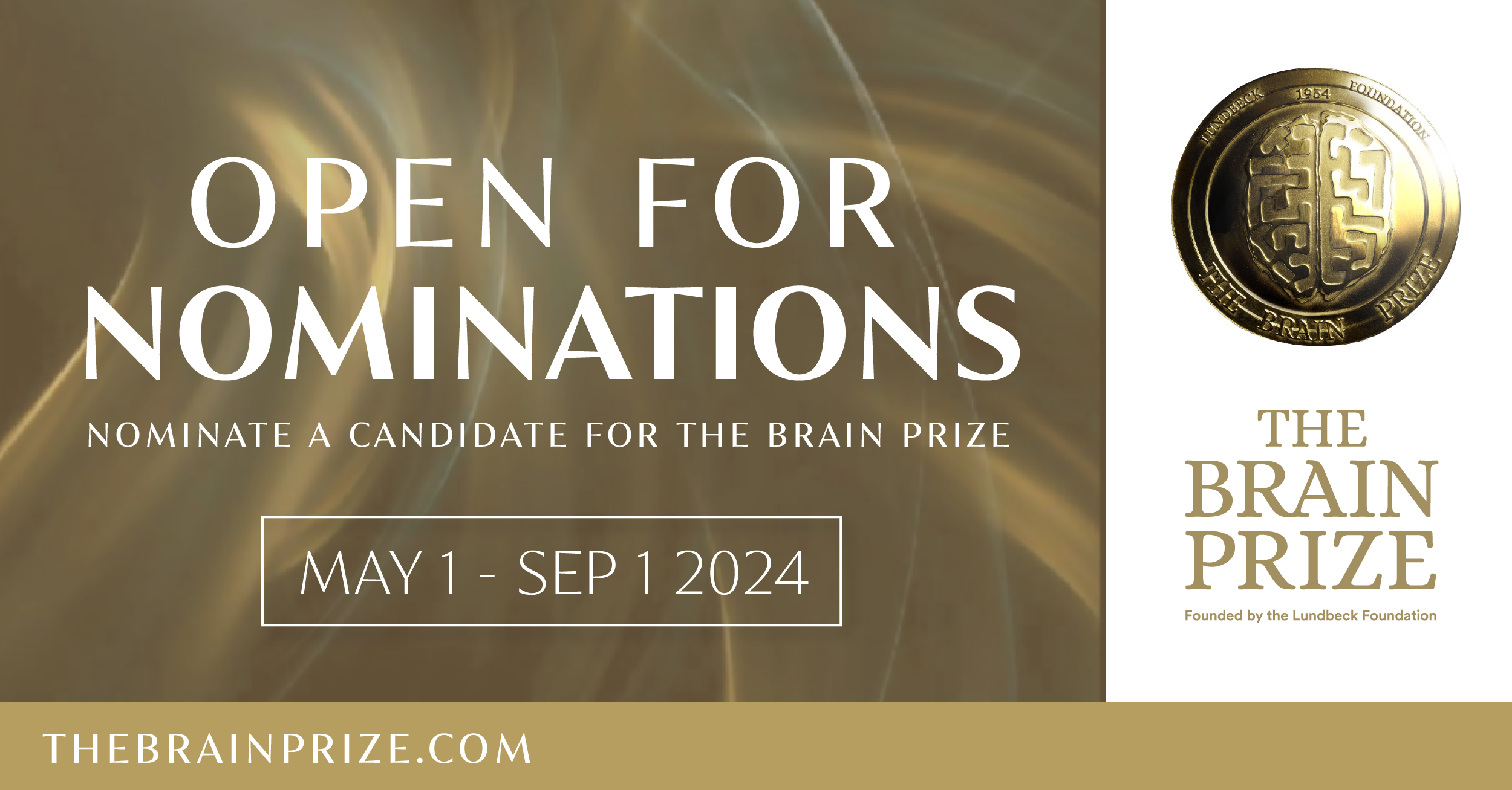Category: Awards
Awards advertisements
-
Brain Star Award Feature: Niklas Brake, McGill University
Better understanding the non-rhythmic components of Electroencephalography (EEG) can lead to better interpretation of brain activity Article citation Brake, N., Duc, F., Rokos, A., Arseneau, F., Shahiri, S., Khadra, A., and Plourde, G. (2024) A neurophysiological basis for aperiodic EEG and the background spectral trend. Nature Communications 15(1514). https://www.nature.com/articles/s41467-024-45922-8 Electroencephalography (EEG) has been in use…
-
Brain Star Award Feature: Caroline Nettekoven, Western University
Development of a functional atlas of the human cerebellum The human cerebellum is a brain region that is activated during many behaviours, including movement, language and cognitive tasks. However, the cerebellum’s contribution to these processes remained poorly understood because of a lack of a comprehensive functional map of this brain region. To address this, Caroline…
-
Brain Star Award feature: Lizheng Wang, University of Calgary
Uncovering the role of cilia in astrocyte development and function Astrocytes are a type of cells that act as crucial regulators of nearly all aspects of the brain. Different types of astrocytes exist; however, little is known about how different subtypes of astrocytes are created during development to differentially support their local neural circuits. Lizheng…
-
Brain Star Award feature: Hayley Renee Christine Shanks, Western University
Phase 2a clinical trial reveals a small molecule called LM11A-31 is safe and slows progression of many features of Alzheimer’s Disease Alzheimer’s disease (AD) is a debilitating neurodegenerative disorder for which there is no cure. Therapeutics available to the approximately 734,000 Canadians living with AD provide symptom management without slowing disease progression. Hayley Renee Christine…
-
Brain Star Award feature: Andrea Luppi, McGill University
Understanding how the brain’s network architecture shapes its capacity to transition between different states To support the diversity of human cognitive functions, such as learning, thinking, reasoning, remembering, problem solving, decision making, and attention, brain regions flexibly form and dissolve connections on the fly. How is the brain’s capacity to transition between different functional configurations…
-
Mark Cembrowski wins the 2025 CAN New Investigator Award for multidisciplinary research that has transformed our understanding of how memory is represented in the brain
The Canadian Association for Neuroscience is proud to announce Dr. Mark Cembrowski will be awarded the 2025 Canadian Association of Neuroscience (CAN) New Investigator Award. Dr. Cembrowski has established himself as an outstanding scientist, collaborator, and mentor, conducting leading-edge research on the cellular and molecular underpinnings of cognition and brain disorders, particularly in memory. Read…
-
The Brain Prize call for nominations: now open
The Brain Prize is currently the world’s largest prize for neuroscience and is awarded each year by the Lundbeck Foundation. The Brain Prize is awarded to one or more individuals who have distinguished themselves by making outstanding contributions in any area of neuroscience- from basic to clinical, and since it was first awarded in 2011…
-
Congratulations to the winners of the 2023 CAN- CIHR-INMHA Brain Star Awards!
The Canadian Association for Neuroscience (CAN) and the Canadian Institutes of Health’s Institute of Neurosciences, Mental Health and Addiction (CIHR-INMHA) are proud to announce the winners of the 2023 Brain Star Awards. The CIHR-INMHA Brain Star awards, administered by the Canadian Association for Neuroscience, are awarded to students and trainees who have published high impact…
-
Caroline Ménard wins the 2024 CAN New Investigator Award for groundbreaking research on stress vulnerability and resilience.
The Canadian Association for Neuroscience is very proud to announce that Dr. Caroline Ménard from Université Laval is the winner of the 2024 CAN New Investigator Award. Her innovative research program is shedding light on the biological mechanisms underlying vulnerability and resilience to stress, with the help of state-of-the-art photonic technology and with the aim…
-
Drs. Arkady Khoutorsky and Bratislav Misic win 2023 CAN New Investigator Awards
The Canadian Association for Neuroscience is very proud to present Dr. Arkady Khoutorsky, Associate Professor in the Department of Anesthesia and Faculty of Dental Medicine and Oral Health Sciences at McGill University, and Dr. Bratislav Misic, leader of the Network Neuroscience Lab at the Montreal Neurological Institute 2023 CAN New Investigator awards. Dr. Arkady Khoutorsky…

